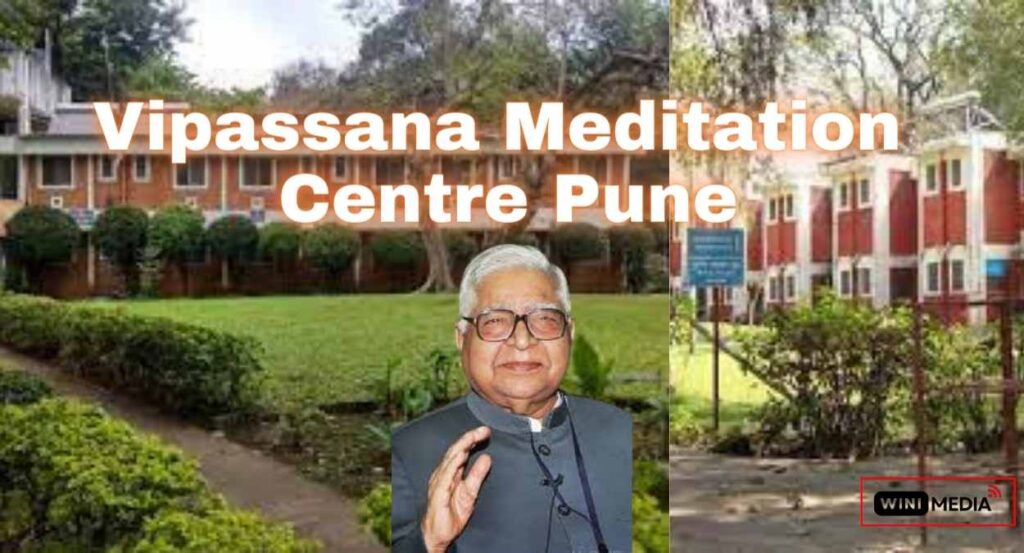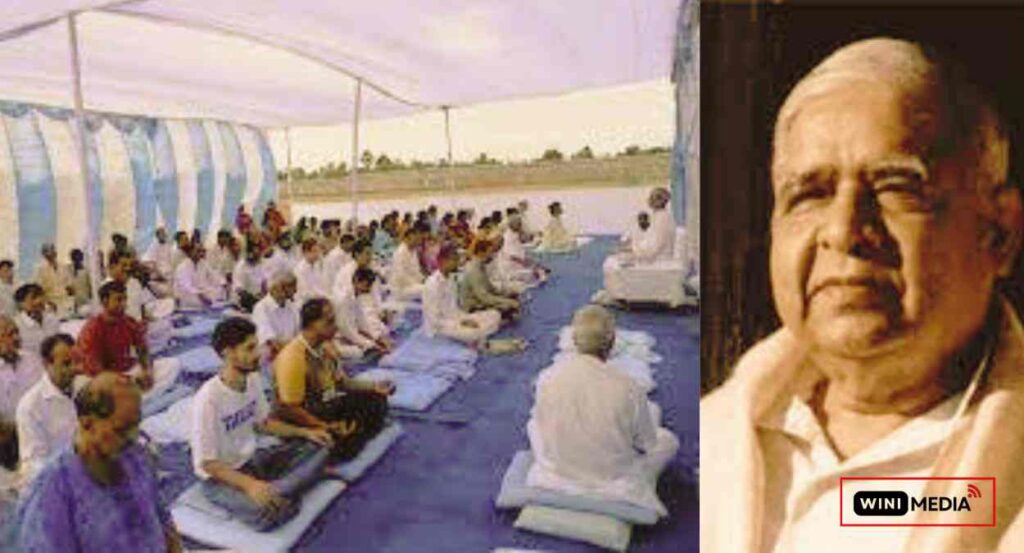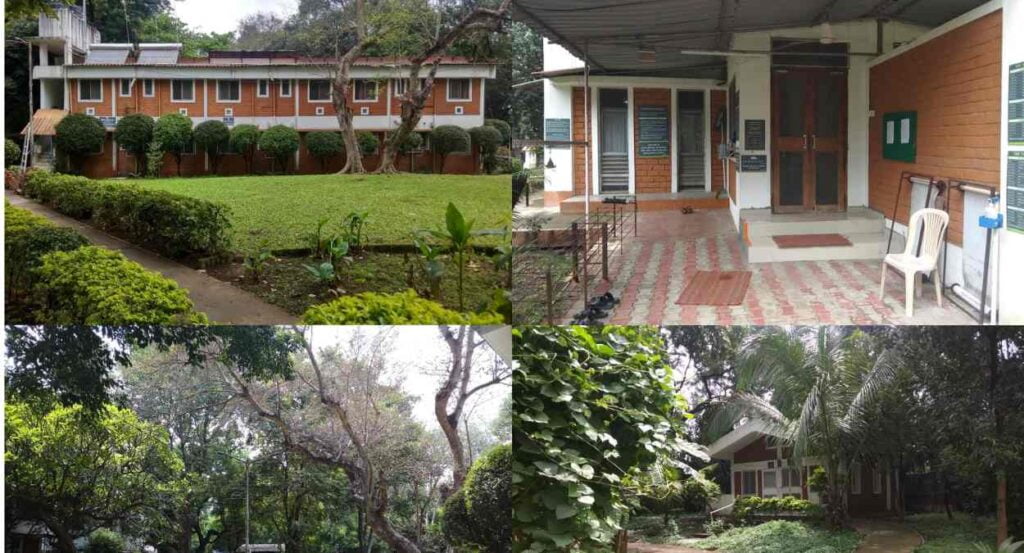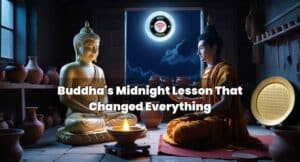{vipassana meditation, vipassana pune, pune vipassana center, anapana meditation, dhamma puna, 10 day vipassana course, meditation technique, buddha meditation }

Find Inner Peace with Vipassana Meditation Retreats in Vipassana Pune Centre
The bustling city of Pune in Maharashtra, India is home to a thriving centre for the transformative practice of Vipassana meditation. This ancient technique, meaning “to see things as they are”, was rediscovered by Buddha over 2,500 years ago and aims to cleanse the mind and amplify awareness. By taking a Vipassana course in Vipassana Pune, you can experience the profound benefits of this immersive form of meditation, In this article we are going to discuss Vipassana meditation and Vipassana Pune Centre
What is Vipassana and How Does it Work?
Vipassana is an introspective meditation technique centred on self-observation. The goal is to attain a clear insight into the true nature of reality. It aims to eliminate mental impurities and bring equanimity through the practice of observing sensations within the body.
In Vipassana, the practitioner pays close attention to bodily sensations, emotions, and thoughts as they arise and pass away. This non-judgemental observation allows coming out of the constant reacting pattern of the mind. Continued practice helps break habituation and conditioned responses.
The name Vipassana means “to see things as they really are.” It provides a way to see the deep interconnection between mind and body. With practice, Vipassana meditation cultivates wisdom and compassion and brings harmony to life.

Some key aspects of Vipassana practice include:
- Observing sensations throughout the body whether pleasant, unpleasant or neutral
- Not reacting or clinging to any sensations
- Maintaining equanimity by being equally attentive to all sensations
- Focusing on the changing nature of sensations as they constantly arise and pass
- Gaining insight into the impersonal nature of bodily phenomena
- Understanding the links between physical sensations and mental reactions
- Seeing the universal characteristics of impermanence, suffering and egolessness
- Developing detachment by understanding the emptiness of sensations
- Cultivating wisdom towards oneself and others
- Progressing towards liberation from all suffering
The Intense 10-Day Vipassana Course
Vipassana is typically learned through a rigorous 10-day silent retreat. Participants follow a strict code of discipline and spend the entire time on-site at the meditation centre. This intensive immersion is meant to enable serious students to properly learn the technique.
The schedule has a progression of practices:
Days 1-3: Focused on Anapana meditation to develop concentration power. This involves observing the natural breath.
Day 4: Vipassana practice begins. Students are taught to observe bodily sensations objectively without reacting.
Days 5-9: Continued practice of Vipassana by observing sensations with equanimity. A vow of silence is maintained except for questions to teachers.
Day 10: Transition back to normal life after the intensive meditation.
This demanding retreat requires a strong commitment. Students must follow five precepts: no killing, stealing, sexual activity, lying, or intoxicants. A typical daily schedule involves 10+ hours of meditation and just a few hours for meals and rest.

Vipassana Schedule of 10 Days Vipassana Meditation Course
Like any other Vipassana centre across the world Here is the schedule for a 10-day course in Vipassana Pune centre:
| Time | Activity |
|---|---|
| 4:00 am | Wake up bell |
| 4:30-6:30 am | Meditate in the hall |
| 6:30-8:00 am | Breakfast break |
| 8:00-11:00 am | Meditate in the hall |
| 11:00-12:00 noon | Lunch break |
| 12:00-1:00 pm | Rest and interviews with teacher |
| 1:00-2:30 pm | Meditate in the hall |
| 2:30-3:30 pm | Walking meditation |
| 3:30-5:00 pm | Meditate in the hall |
| 5:00-6:00 pm | Tea break |
| 6:00-7:00 pm | Meditate in the hall |
| 7:00-8:00 pm | Teacher’s discourse in the hall |
| 8:00-9:00 pm | Question time in the hall |
| 9:00 pm | Retire to your room |
But this immersion brings tremendous insights. By confronting physical and mental suffering head-on during the course, students emerge with a deepened understanding of reality.

The Pune Vipassana Center ( Vipassana Pune )
Set on a peaceful 23-acre property, the Pune Vipassana Center (Vipassana Pune) is an ideal site for learning this transformative practice. It is located about 7 km from Pune Railway Station in the western state of Maharashtra.
The Vipassana Pune Centre can host up to 90 students with separate male and female zones. Key facilities include:
- Spacious Dhamma meditation hall with a capacity of around 80 students
- Approximately 40 fully furnished rooms with attached baths for student accommodation
- Separate dining hall serving simple vegetarian breakfast and lunch
- Registration office for student check-in and providing course information
- Small bookshop selling books, CDs and material related to Vipassana
- Beautiful garden walking areas for reflection during breaks
Despite intense practice, the serene environment here provides a perfect setting for gaining deep insights. The Vipassana Pune Centre holds numerous 10-day courses annually along with short 3-day courses for experienced Vipassana practitioners.
The Vipassana Pune centre offers the following meditation courses:
- 10-day courses for new students above 18 years
- 7-day teen courses for students between 15-19 years
- 3-day courses for experienced meditators
- Specialized 1-day courses for children between 8-12 years
- Periodic long courses for advanced students of Vipassana
The Vipassana Pune centre has hosted thousands of students from India and abroad since its founding in 1997. Students often describe their stays as life-changing experiences that provide great inner peace.
Vipassana Pune: Rules and Code of Discipline
To enable optimal focus, Vipassana courses require students to temporarily adopt an austere lifestyle:
- Noble silence: No talking or gestures except with teachers. This minimizes distraction.
- No intoxicants: No alcohol, tobacco, or recreational drugs permitted.
- No reading/writing: External information sources restricted to maintain introspection.
- Vegetarian meals: No dinner served to keep the digestive system light.
- No exercise: Physical exertion avoided to sit still for long periods.
- Separate gender zones: No interaction between males and females to remove distractions.
These rules create the discipline needed to go deep during intensive meditation. Students are expected to demonstrate serious commitment when learning Vipassana in Pune. They must also follow additional rules of conduct such as:
- Waking up and sleeping at the prescribed times
- Attending all meditation sessions in the hall
- Maintaining noble silence and avoiding communication
- Practicing meditation in the allocated space
- Refraining from any rituals, chanting or religious activity
- No use of personal electronic devices like phones or cameras
Strictly following this code of discipline allows students to reap maximum benefits from the demanding yet rewarding course.

The Vipassana Meditation Technique
Vipassana courses aim to teach students the meditation technique in a structured manner. The step-by-step technique is imparted by experienced teachers:
1. Observe the breath (Anapana)
Students learn to observe the natural breath as it enters and leaves the nostrils. This develops initial concentration.
2. Scan body sensations
The key practice involves feeling subtle sensations throughout the body and objectively observing them without reacting.
3. Remain equanimous
One cultivates equanimity by not clinging to pleasant sensations or resisting unpleasant ones.
4. Let sensations pass
The constant arising and passing of sensations is neutrally observed. This brings insight.
5. Gain wisdom
By experiencing the changing nature of bodily phenomena, one gains wisdom about the universal truths.
6. Continue practice
Regular Vipassana practice helps remove conditioned mental patterns and brings liberation.
This simple yet profound technique eradicates suffering at the root by changing one’s relationship with sensations.
Benefits of Vipassana Meditation
Regular Vipassana practice brings manifold benefits:
- Develops mindfulness and inner awareness
- Helps to gain insights into how the mind works
- Promotes equanimity and resilience
- Dissolves stress and enhances peace
- Removes deep-rooted mental conditioning
- Leads to harmony and compassionate living
- Brings wisdom to see reality clearly
- Enables leading an ethical, purposeful life
Here are some specific benefits of Vipassana:
1. Reduces stress and anxiety
By learning to objectively observe sensations, Vipassana helps break the cycle of mental chatter and worrying that fuels anxiety. Studies show regular practice significantly reduces psychological distress.
2. Promotes emotional balance
Equanimity developed through Vipassana helps practitioners meet desirable and unwanted situations with an even mind. This leads to emotional stability and balanced thinking.
3. Enhances focus and concentration
The initial focus on the breath exercise in Anapana meditation improves students’ ability to concentrate. This one-pointed attention faculty supports enhanced productivity.
4. Provides relief from pain
Research indicates Vipassana reduces pain perception by changing the brain’s response to physical pain. Non-reactive observation of pain promotes acceptance rather than aversion.

5. Fosters healthy habits
The practice of non-reaction helps break ingrained patterns of behaviour based on craving and aversion. This promotes making choices aligned with one’s values.
6. Improves sleep quality
The deep relaxation and reduced stress induced by Vipassana enable falling asleep more easily and getting better quality sleep. Many students report sleeping better after a course.
7. Builds self-awareness
Continuously observing oneself leads to increased self-awareness. The introspective practice creates a clear understanding of one’s personality patterns.
8. Promotes positive relationships
The self-awareness, equanimity and compassion arising from Vipassana improve relationships as one can skillfully handle conflicts.
9. Creates purpose and meaning
The wisdom and proper understanding of reality attained through Vipassana provide a sense of purpose and meaning to life.
10. Leads to enlightenment
With ongoing practice, Vipassana meditation can lead to total liberation from suffering and becoming established in the highest spiritual wisdom.
Vipassana vs Mindfulness Meditation
Though related, mindfulness and Vipassana are two distinct forms of meditation:
| Vipassana | Mindfulness |
|---|---|
| Observes bodily sensations | Focuses on thoughts, emotions |
| Aims for deep insights | Develops present moment awareness |
| Non-reactivity to sensations | Non-judgemental acceptance of thoughts |
| Insight into impermanence | Being in the here and now |
| Liberation is the goal | Reducing stress is the goal |
| Buddha’s teaching | Modern scientific practice |
Both complement each other. Vipassana builds on mindfulness by going deeper into how the mind-body connection creates suffering.
FAQs on Vipassana Meditation
How long are Vipassana courses?
The standard Vipassana course is 10 days long. There are also shorter 3-day courses for experienced meditators. Courses typically run for 10+ hours of meditation daily.
What is the cost of a Vipassana course?
Vipassana courses are run solely on donations from students. There are no fixed fees but participants can make donations after finishing to support the centers.
Where did Vipassana originate?
Vipassana is an ancient Indian meditation technique used by Buddha over 2,500 years ago. It aims to gain deep insights into the true nature of reality.
How is Vipassana different from mindfulness?
Mindfulness involves focusing on the present moment in a non-judgemental way. Vipassana uses observation of bodily sensations to gain direct insight into the mind-body connection.
Can Vipassana cure mental health issues?
Vipassana can help improve mental health but is not a replacement for medical treatment of mental illnesses. It aims for spiritual growth by changing thought patterns.
What are the precepts to follow?
During the course, participants follow five precepts – no killing, stealing, sexual activity, lying, or intoxicants. These rules create the discipline needed.
Conclusion
In the busy modern world, Vipassana meditation is a priceless gift for achieving true happiness. By cleansing the mind, it provides a pathway to live fully in the present moment. Courses in Vipassana Pune offer a life-changing opportunity for mastering this profound art. With continued practice, Vipassana gradually transforms one’s life into an enlightened existence marked by inner stillness.
Disclaimer: This article provides general information and should not substitute medical or mental health treatment. Please consult your physician or therapist for any concerns.
Also Read:
Vipassana Meditation Centre Delhi – Nestled in Aravali Hills,Perfect for Vipassana Meditators
Discover India’s Top 25 Vipassana Meditation centre For Life Transformation
The Truth About the Global Vipassana Pagoda’s Mesmerizing Relics
The Complete Guide to Transformational Vipassana Meditation
Understanding Blood Tests: What They Can Reveal About Your Health 2024
Cervical Cancer in India: A Comprehensive Guide on Risk Factors, Symptoms, Prevention and Treatment






























